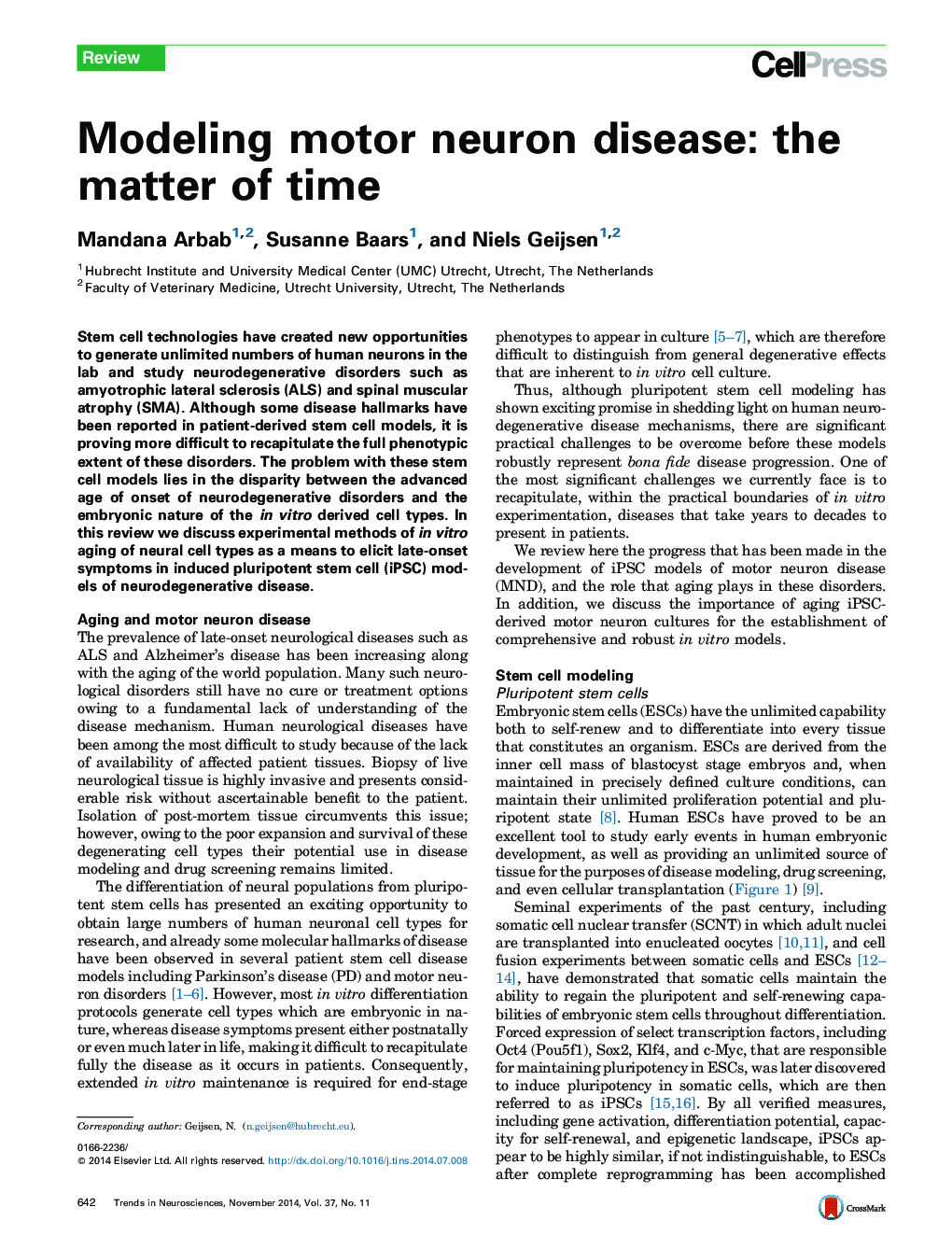| Article ID | Journal | Published Year | Pages | File Type |
|---|---|---|---|---|
| 4354256 | Trends in Neurosciences | 2014 | 11 Pages |
•Stem cell based in vitro models of neural disease give rise to embryonic cell types.•Protocols for in vitro maturation and aging are lacking.•Systemic ‘aging’ factors and/or genetic determinants of rapid aging can improve in vitro model systems.
Stem cell technologies have created new opportunities to generate unlimited numbers of human neurons in the lab and study neurodegenerative disorders such as amyotrophic lateral sclerosis (ALS) and spinal muscular atrophy (SMA). Although some disease hallmarks have been reported in patient-derived stem cell models, it is proving more difficult to recapitulate the full phenotypic extent of these disorders. The problem with these stem cell models lies in the disparity between the advanced age of onset of neurodegenerative disorders and the embryonic nature of the in vitro derived cell types. In this review we discuss experimental methods of in vitro aging of neural cell types as a means to elicit late-onset symptoms in induced pluripotent stem cell (iPSC) models of neurodegenerative disease.
